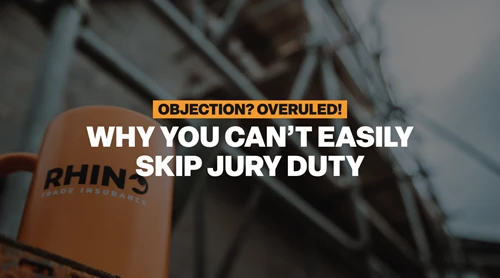Believe it or not, water scarcity has become a real issue here in the usually rain-soaked UK, leading to hosepipe bans being implemented in various regions. While these restrictions aim to conserve water resources, they can significantly impact various sectors of the economy.
As various tradespeople utilise water for their work, we wanted to spend a few minutes exploring how these bans affect your trade business. In this blog post, we will share the effects of a hosepipe ban on your work and discuss strategies to navigate this challenging situation.
What is a hosepipe ban?
A hosepipe ban, also known as a water-use restriction or water rationing, is a temporary measure implemented by local authorities or water companies to conserve water during periods of water scarcity or drought. It involves restricting or prohibiting the use of hosepipes for non-essential activities, such as watering gardens, washing cars, or filling swimming pools.
Hosepipe bans are typically enforced when water supplies are low, and demand exceeds the available resources. These bans are implemented to ensure that essential water needs, such as drinking water, sanitation, and firefighting, can be met without exhausting the available supply.
A hosepipe ban's specific restrictions and regulations can vary depending on the region and severity of the water shortage. In addition to limiting or banning the use of hosepipes, other measures may be included, such as restrictions on sprinkler systems, pressure washers, and other non-essential uses of water.
A hosepipe ban encourages water conservation, reduces water wastage, and prioritises using available water for essential needs. These measures aim to protect water supplies, prevent water stress, and sustain ecosystems during periods of drought or water scarcity.
How a hosepipe ban can affect your business
A hosepipe ban can severely hamper your operations if your trade business involves cleaning, maintenance, or landscaping services that heavily rely on water usage. Without access to water for tasks such as pressure washing, window cleaning, or irrigation, the efficiency of your services may be compromised. This can lead to delays, dissatisfied customers, and potential loss of business.
When faced with a hosepipe ban, trade businesses may need to invest in alternative equipment and technologies to carry out their operations efficiently. For instance, you might need to purchase water-saving devices, install water recycling systems, or explore alternative cleaning methods that require less water. These additional investments can strain your budget and require adjustments to your operational processes.
During periods of water scarcity, authorities typically enforce strict regulations and penalties to ensure compliance with hosepipe bans. As a trade business, it is crucial to collaborate with local water authorities and stay updated on the rules to avoid fines or legal repercussions. Proactively engaging with water management agencies can also provide opportunities for partnership and garner goodwill within your community.
How preparing for the inevitable can benefit your customers.
Many trade businesses rely on water and hose pipes to get their work done. Any of the following will be using lots of water on a daily basis:
During a hosepipe ban, customers become more aware of water scarcity issues and tend to prioritise businesses that demonstrate environmental responsibility. This shift in customer behaviour can present both challenges and opportunities for your trade business.
Customers may be more inclined to choose service providers who have adapted their practices to conserve water or offer water-efficient solutions. You can differentiate your business and attract environmentally conscious customers by actively promoting your sustainable efforts.
To mitigate the impact of a hosepipe ban on your trade business, it is essential to diversify your offerings and adapt to the changing market conditions. Consider expanding your services to include water-efficient solutions or exploring alternative revenue streams that are less water-dependent. For instance, if you offer landscaping services, you could focus on drought-resistant plants or incorporate artificial turf installations that require minimal water.
Exemptions from Hosepipe Bans
You can use a hosepipe in several situations, which include:
- Watering land or a garden which is used for growing crops
- Maintaining or filling a pond which is used for the welfare of animals
- Cleaning services to customers, which include windows, paths, patios or other artificial surfaces.
- Washing commercial vehicles like taxis or goods vehicles.
- Filling a water fountain which is used for religious beliefs.
How to check for hosepipe bans
Various water companies or authorities set hosepipe bans in the UK. Not following the rules can result in your business facing fines of up to £1000. If you are unsure whether there is a ban in your local area, it's best to contact the company or use the postcode checked to see the affected areas.
A non exhaustive list of water companies include:
Can I still work under a hosepipe ban?
In most cases, yes. While a hosepipe ban can present challenges to your trade business, it also offers opportunities for innovation and differentiation. By embracing water-saving technologies, adapting your services, and promoting sustainability, you can navigate the impact of water scarcity measures and emerge as a resilient and environmentally conscious trade business.
Emphasising education, collaboration, and adaptability will help you overcome the immediate challenges and position your business for long-term success in a world where water resources are increasingly precious.
Rhino Trade Insurance are the trade insurance experts. To discuss your trade insurance cover and to speak with a helpful member of the Rhino team, give us a call at 0116 243 7904. Alternatively, if you'd rather handle things on your own, utilise our useful online quote engine.




